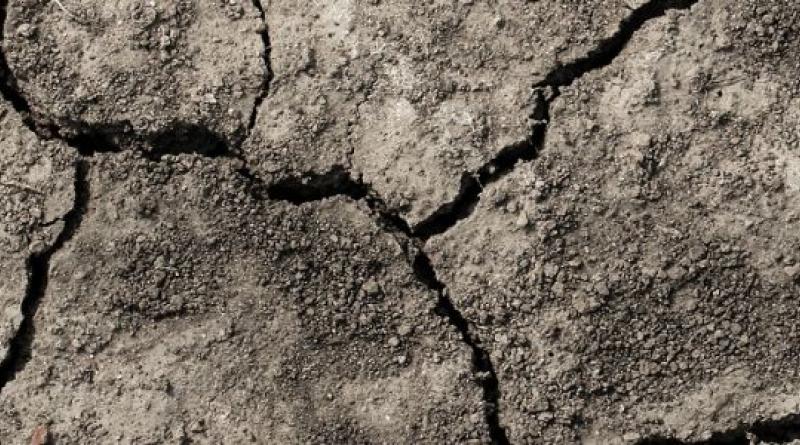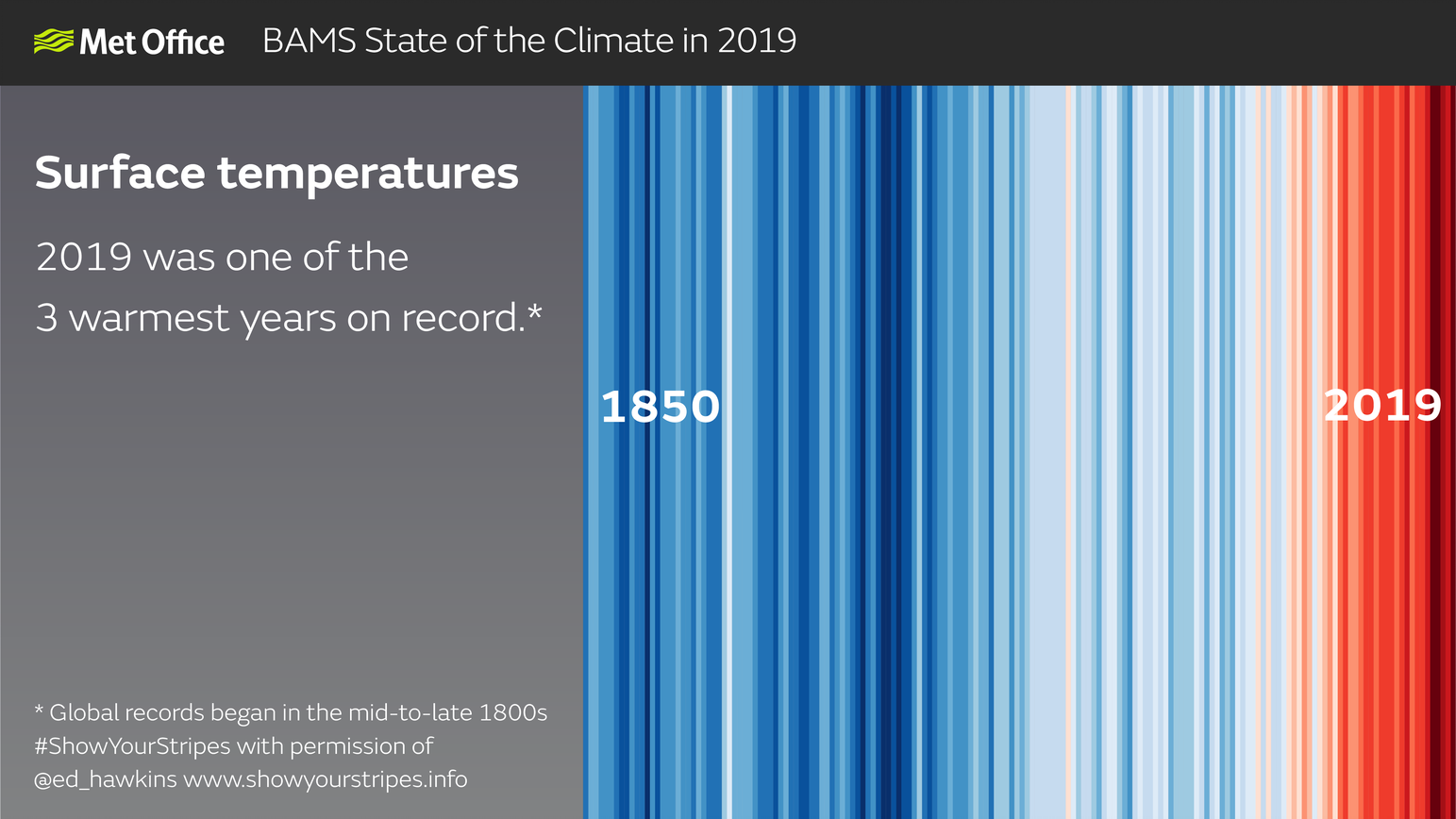New report on the state of global climate in 2019.

A major report on the state of the global climate for 2019 published today reveals further evidence of climate change.
The 30th edition of the Bulletin of the American Meteorological Society is a peer-reviewed report with contributions from climate scientists around the world, including from the Met Office.
The latest BAMS report includes the following headlines:
- Each decade since 1980 has been successively warmer than the preceding decade, with the most recent (2010–19) being around 0.2 °C warmer than the previous (2000–09).
- 2019 was among the three warmest years since records began in the 1800s (only 2016 and 2015 – in some datasets – were warmer
- All years after 2013 have warmer than all others back to the mid 1800s
- For the 32nd consecutive year, 2019 saw the loss of mass from mountain glaciers across the globe
- Lake temperatures are above the long-term average and permafrost temperatures have continued to increase
- The northern hemisphere growing season was eight days longer than average
- During the year, the atmospheric concentration of greenhouse gases increased by the following amounts: carbon-dioxide (2.5 parts per million); nitrous-oxide (1 part per billion); and methane (9.2 parts per billion)
- There were exceptional wildfire events over Australia, Amazonia, Indonesia and parts of Siberia

Robert Dunn from the Met Office leads the editor team for the Global Climate chapter in the BAMS State of the Climate report. He said: “The BAMS report aims to provide an authoritative and observationally-driven view of the weather and the climate each year.
“The view for 2019 is that climate indicators and observations show that the global climate is continuing to change rapidly.
“Global average temperature is perhaps the simplest climate indicator through which to view the changes taking place in our climate. 2019 was one of the top three warmest years in the historical record dating back to 1850. It also marks the end of a decade in which the average global temperature had risen by 0.2 °C when compared with the previous decade. And this millennium has been warmer than any comparable period since the Industrial Revolution.
“A number of extreme events, such as wildfires, heatwaves and droughts, have at least part of their root linked to the rise in global temperature. And of course the rise in global temperature is linked to another climate indicator: the ongoing rise in emissions of greenhouse gases, notably carbon-dioxide, nitrous oxide and methane.”
Albert Klein-Tank is the director of the Met Office Hadley Centre, which also marks its 30th anniversary this year. Commenting on the publication of the report, he said: “The last three decades have been pivotal in shifting humanity’s understanding of the impacts of climate change. Thirty years on we have a huge body of climate observations charting climate change since the early 1990s and we also have a body of climate science research from the Met Office and other organisations helping us to understand and predict, in part, future climate change.
“In 2020 we stand at a mid-point in a climate change journey. We have come a long way in 30 years, but the next 30 years are going to be extremely challenging as we the evidence of climate science and observations to help humanity solve the climate crisis.”
12 August 2020
Met Office



